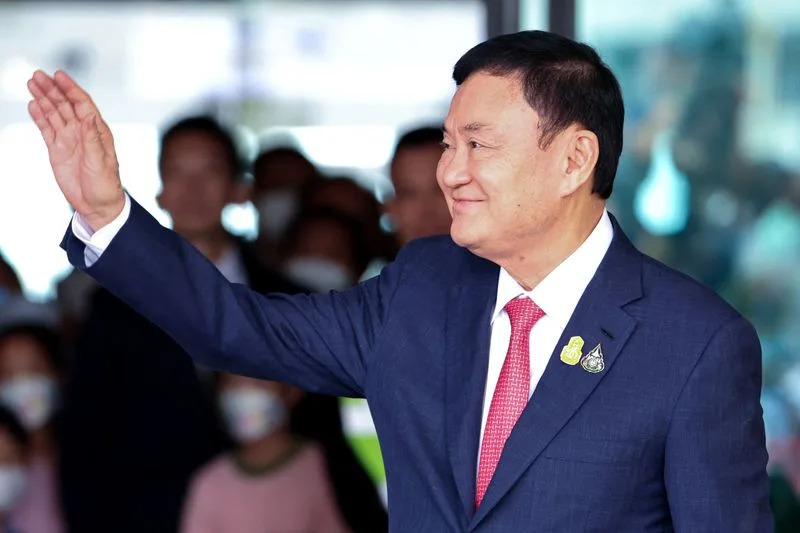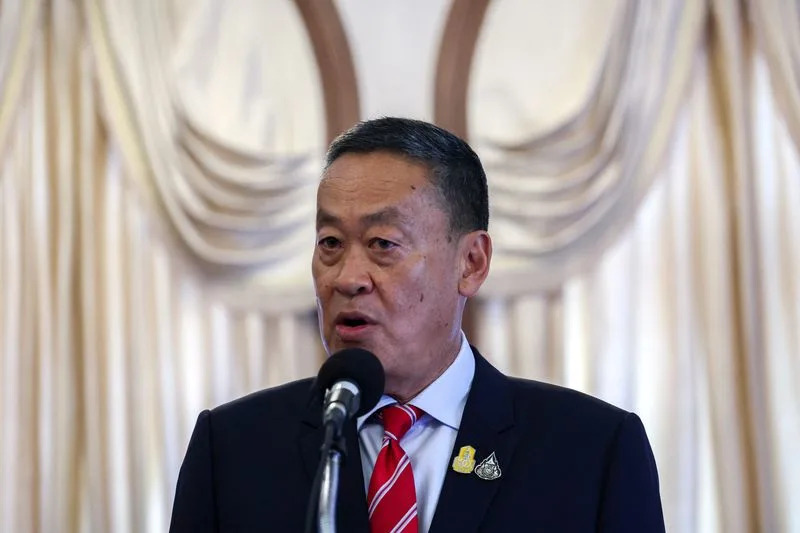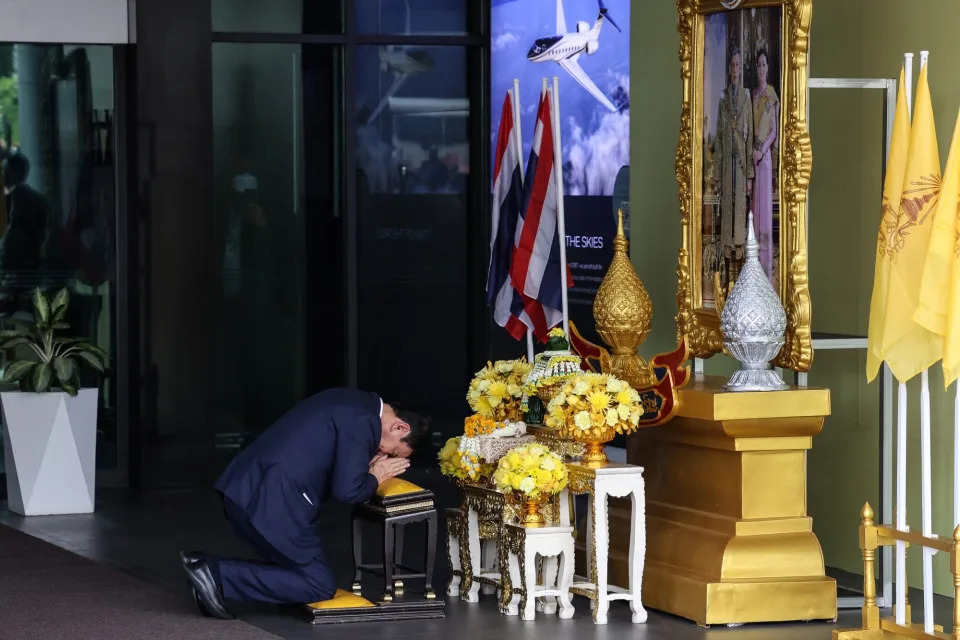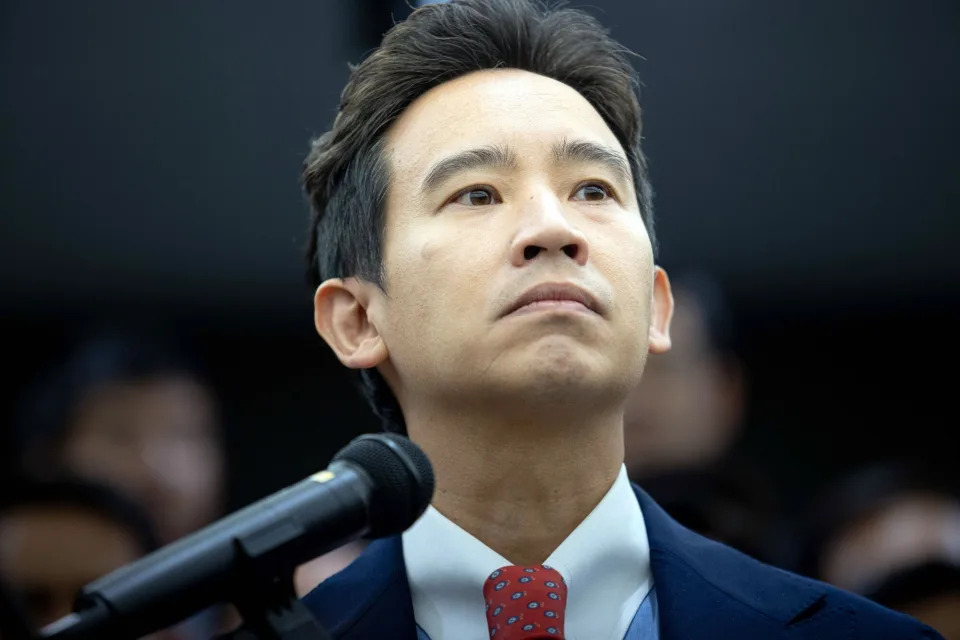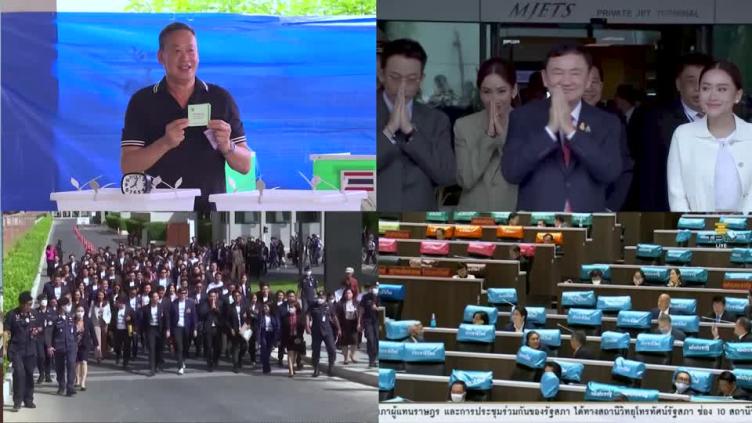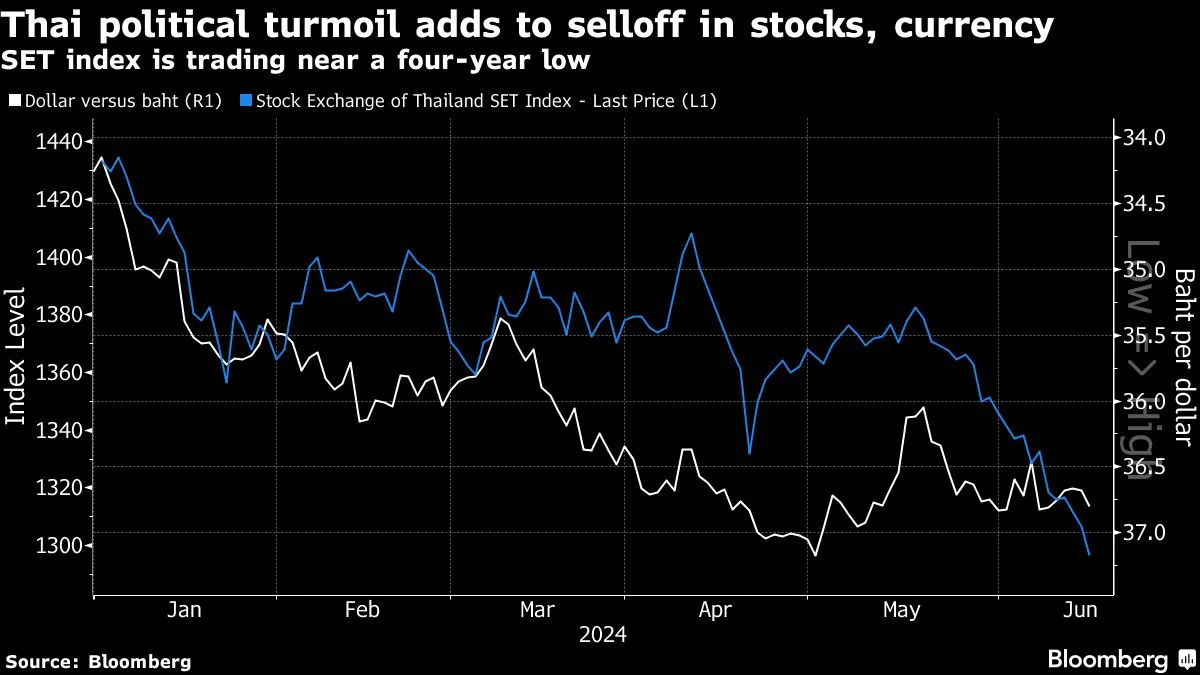This is billed as a ‘change’ election – but Britain’s electoral system means hardly any seats are true multi-party contests
THE CONVERSATION
Published: June 18, 2024
With all polls pointing in the same direction, the 2024 election will deliver seismic change. It is being seen as a contest that will practically wipe out one party and deliver a large majority to another. But the reality for most of the voting public will feel quite different, at least at the constituency level.
The Electoral Reform Society has estimated that more than 100 of the UK’s 650 parliamentary seats haven’t changed hands for 100 years or more. Millions of voters, therefore, reside in what the society describes as “one party fiefdoms”.
The data shows that 28% of constituencies have been held by the same party since the second world war, and that 38% have remained under the same party’s control for 50 years or more. The Conservatives dominate in 94 of the seats which have not changed hands for over a century; Labour holds 17 of them.
Prior to the dissolution of parliament last month, Labour held over 200 seats. It is highly likely that very nearly all of these seats will return a Labour MP again.
Join thousands of Canadians who subscribe to free evidence-based news.Get newsletter
Meanwhile, opinion polls have suggested that the Conservatives are currently on track to win between 66 and 140 seats. These “wins” are more than likely going to be seats the party already currently holds.
Read more: Election 2024: how many seats every party in Westminster is defending – and what they are aiming for on July 4
Strong polling trends also indicate that the Liberal Democrats will retain the 12 seats they won in 2019 and any SNP seats are likely to be among the 48 they won in 2019.
Given these figures, it is not difficult to see how almost half the seats are likely to be represented by the same political party as before the election was called.
When is a marginal not really marginal?
Even though 13 parties were represented in the Westminster parliament when it was dissolved for this election, and even though many more parties will be listed on ballot papers, barely any constituencies are truly what can be considered multi-party contests.
Under first-past-the-post, the majoritarian electoral system used for British general elections, voters’ choices are limited at the ballot box.
Sometimes that’s because not every party is standing in their constituency – for example, the SNP only stands in Scottish seats, Labour doesn’t stand in Northern Ireland, and the Greens are concentrating on target seats in 2024. More often though, the limitations are indirect – voters appear to have a choice between many parties, but only one or two have a realistic chance of winning.
For too many people in the UK, voting is not a true choice between parties. Thanks to the first-past-the-post voting system, much of the electorate resides and votes in safe seats – constituencies where certain parties have consistently and repeatedly won with quite substantial majorities. Even so-called “marginal constituencies” are often contests between no more than two parties; the one defending it and the one most able to replace the incumbent.
In these circumstances, voters can feel cornered into tactical voting, supporting a viable party in their local constituency to defeat a party that they dislike, rather than casting a vote for the party they genuinely prefer.
2019’s record
In 2019, in what was described as an “earthquake” election which gave the Conservatives the largest parliamentary majority since Tony Blair in 2001, just 81 seats (12.5%) changed hands. Only 37 seats – 5.7% of all those contested – were three-way marginal races in which the vote-share gap between first and third place parties was less than 20 percentage points. Ynys Mon was the closest, where just 7% separated the Conservatives, who won the seat, and Plaid Cymru, who came third behind Labour.

Even the cows have stopped listening. Alamy/PA/Jonathan Brady
Most true electoral battles are concentrated in a few highly competitive areas, leading parties to focus their resources on these seats. In 2019, the overwhelming majority of seats saw just two parties hold a realistic chance of winning – and 100 of them had a two-party vote share of over 90%.
If we exclude the five constituencies where an independent candidate came second (no independent won any seats) and the Speaker’s seat (which is traditionally uncontested by the other main parties), the average vote share of the top two parties in the remaining 644 constituencies amounted to 83.67%. Only 158 had a two-party vote share of less than 80%, meaning that, at best, the third-place candidate in each of these seats, received half the votes of the winner. If that sounds like an unwinnable seat, it’s because it probably is.
The number of very safe seats – seats won by a margin of between 45 and 50% – increased from 29 to 31. Of the 30 safest seats, Labour holds 20 and the Conservatives ten.
None of this means that change cannot happen, and shocks do occur at a local level. But drastic changes are generally limited to a small number of constituencies. Even in Tony Blair’s landslide election victory in 1997, less than a third of seats (181 out of 650) changed hands.
Many voters will feel bypassed in this election, as they often do. This perhaps helps explain why, despite talk of a seismic shock at the national level, there seems to be a very low level of enthusiasm for this election and the people running in it.
Most true electoral battles are concentrated in a few highly competitive areas, leading parties to focus their resources on these seats. In 2019, the overwhelming majority of seats saw just two parties hold a realistic chance of winning – and 100 of them had a two-party vote share of over 90%.
If we exclude the five constituencies where an independent candidate came second (no independent won any seats) and the Speaker’s seat (which is traditionally uncontested by the other main parties), the average vote share of the top two parties in the remaining 644 constituencies amounted to 83.67%. Only 158 had a two-party vote share of less than 80%, meaning that, at best, the third-place candidate in each of these seats, received half the votes of the winner. If that sounds like an unwinnable seat, it’s because it probably is.
The number of very safe seats – seats won by a margin of between 45 and 50% – increased from 29 to 31. Of the 30 safest seats, Labour holds 20 and the Conservatives ten.
None of this means that change cannot happen, and shocks do occur at a local level. But drastic changes are generally limited to a small number of constituencies. Even in Tony Blair’s landslide election victory in 1997, less than a third of seats (181 out of 650) changed hands.
Many voters will feel bypassed in this election, as they often do. This perhaps helps explain why, despite talk of a seismic shock at the national level, there seems to be a very low level of enthusiasm for this election and the people running in it.
Authors
Christopher Kirkland
Senior Lecturer in Politics, York St John University

Senior Lecturer in Politics, York St John University
Thomas Lockwood
PhD Candidate, York St John University
PhD Candidate, York St John University
Why legacy media brands still matter in the UK’s ‘social media’ election
Published: June 18, 2024 12.27pm EDT
For decades, the front pages of newspapers have documented iconic campaign moments. Now, many think that the internet (particularly social media platforms) is where an election is won or lost. Some have even dubbed this year’s general election the “TikTok election”.
It is true that the nature of campaigning has changed, and newspaper and broadcaster reach has waned. But legacy media brands still drive much of the political conversation around elections and beyond, though analysing their continuing reach and influence is complicated.
News organisations are facing varying challenges related to their enduring influence, reputation and reach among audiences. Media companies that can draw on deeper pockets and resilient brand loyalties are best positioned to withstand such difficulties.
But media consumption is not a zero-sum game. Suggestions that established news providers are rapidly declining in the face of the digital media ascendancy are unfounded. Around half of UK adults may say they use social media for news, but that does not mean they have no need for traditional media.
Get your news from people who know what they’re talking about.Sign up for newsletter
Digital platforms such as social media apps are not, themselves, publishers (a distinction that has enabled tech companies to avoid statutory regulation). They operate, via the user’s feed, as gatekeepers to information often hosted elsewhere.
The Sun, Daily Mail and other legacy news providers are brands that exist both on and offline (rather than merely as printed or broadcast entities). If we remember this, their enduring value becomes clearer. In April, the Sun and the Daily Mail, along with the Mirror and the Guardian, reached over 20 million people in the UK each. The BBC had an even larger audience of 37.8 million on its apps and websites alone.
Many people using social media for news deliberately access legacy media, by following journalists and news organisations of interest to cultivate their news feed. Other access is incidental, but no less important for its serendipity – three-quarters of online legacy news content is accessed via side-door routes such as social media, search and mobile aggregators.
And to the extent that influencers are the predominant source for news on platforms like Instagram and TikTok, it is fundamentally the work of professional journalism which provides the material upon which their commentary is based.
Direct access
Another assumption in the discussion about the decline of established journalism is that politicians can disregard traditional news providers. Social media, the argument goes, means they can now directly address potential voters.
In practice, however, politicians have not abandoned their interest in attracting mainstream media attention (and ideally approval). Even that most notorious scourge of “fake news”, Donald Trump, clearly designs his social media outputs to engage (and outrage) reporters within the Washington beltway.
A key aspect of communicative and political power is the ability to shape public discourse from behind the scenes, in subtle ways. For politicians, this means cultivating relationships with journalists, away from public view.
Political elites still need their media counterparts, and vice versa. There are mutual benefits that the confidential distribution and co-production of information delivers. The “open door” between media and political executives both symbolises and cements their relationship, and further underlines the enduring relevance of legacy news brands.


Published: June 18, 2024 12.27pm EDT
For decades, the front pages of newspapers have documented iconic campaign moments. Now, many think that the internet (particularly social media platforms) is where an election is won or lost. Some have even dubbed this year’s general election the “TikTok election”.
It is true that the nature of campaigning has changed, and newspaper and broadcaster reach has waned. But legacy media brands still drive much of the political conversation around elections and beyond, though analysing their continuing reach and influence is complicated.
News organisations are facing varying challenges related to their enduring influence, reputation and reach among audiences. Media companies that can draw on deeper pockets and resilient brand loyalties are best positioned to withstand such difficulties.
But media consumption is not a zero-sum game. Suggestions that established news providers are rapidly declining in the face of the digital media ascendancy are unfounded. Around half of UK adults may say they use social media for news, but that does not mean they have no need for traditional media.
Get your news from people who know what they’re talking about.Sign up for newsletter
Digital platforms such as social media apps are not, themselves, publishers (a distinction that has enabled tech companies to avoid statutory regulation). They operate, via the user’s feed, as gatekeepers to information often hosted elsewhere.
The Sun, Daily Mail and other legacy news providers are brands that exist both on and offline (rather than merely as printed or broadcast entities). If we remember this, their enduring value becomes clearer. In April, the Sun and the Daily Mail, along with the Mirror and the Guardian, reached over 20 million people in the UK each. The BBC had an even larger audience of 37.8 million on its apps and websites alone.
Many people using social media for news deliberately access legacy media, by following journalists and news organisations of interest to cultivate their news feed. Other access is incidental, but no less important for its serendipity – three-quarters of online legacy news content is accessed via side-door routes such as social media, search and mobile aggregators.
And to the extent that influencers are the predominant source for news on platforms like Instagram and TikTok, it is fundamentally the work of professional journalism which provides the material upon which their commentary is based.
Direct access
Another assumption in the discussion about the decline of established journalism is that politicians can disregard traditional news providers. Social media, the argument goes, means they can now directly address potential voters.
In practice, however, politicians have not abandoned their interest in attracting mainstream media attention (and ideally approval). Even that most notorious scourge of “fake news”, Donald Trump, clearly designs his social media outputs to engage (and outrage) reporters within the Washington beltway.
A key aspect of communicative and political power is the ability to shape public discourse from behind the scenes, in subtle ways. For politicians, this means cultivating relationships with journalists, away from public view.
Political elites still need their media counterparts, and vice versa. There are mutual benefits that the confidential distribution and co-production of information delivers. The “open door” between media and political executives both symbolises and cements their relationship, and further underlines the enduring relevance of legacy news brands.

Where do you get your news? Yorkshireknight/Shutterstock
Newspapers also influence other forms of media content, including that of broadcasters. Opinion-forming programmes such as Radio 4’s Today, BBC Breakfast and Sunday with Laura Kuenssberg continue to privilege front-page press stories, including in their coverage of this election.
One of the clearest indicators that leading politicians still care about traditional media agenda-setting is the close interest they pay to the editorial preferences of leading news organisations. True, Rishi Sunak took to social media to promote his national service policy. But he is likely to be much more concerned about speculation that Rupert Murdoch’s newspapers may endorse Labour than by whether the Conservatives will have a better TikTok game.
Keir Starmer has placed “change” at the heart of both his mission to re-shape his party and his electoral offer to voters. Whether his invitation to Murdoch’s most recent summer party reflects this shift in the Labour party brand, or simply Murdoch’s propensity to back prospective winners, will ultimately be less important to Starmer than the thaw in relations itself.
Either way, it is a striking contrast to The Sun’s vituperative treatment of Starmer’s predecessor, Jeremy Corbyn, in the last election. If The Sun does declare for Labour, don’t expect an equivalent avalanche of anti-Sunak hyperbole during the run-up to polling day. The most Starmer can hope for is a de-alignment, rather than realignment of the paper’s editorial stance.
This reveals something about the enduring power of established news brands. When these kinds of electoral alliances form, it is the politicians, rather than the publishers, who tend to make the greater concessions.
Newspapers also influence other forms of media content, including that of broadcasters. Opinion-forming programmes such as Radio 4’s Today, BBC Breakfast and Sunday with Laura Kuenssberg continue to privilege front-page press stories, including in their coverage of this election.
One of the clearest indicators that leading politicians still care about traditional media agenda-setting is the close interest they pay to the editorial preferences of leading news organisations. True, Rishi Sunak took to social media to promote his national service policy. But he is likely to be much more concerned about speculation that Rupert Murdoch’s newspapers may endorse Labour than by whether the Conservatives will have a better TikTok game.
Keir Starmer has placed “change” at the heart of both his mission to re-shape his party and his electoral offer to voters. Whether his invitation to Murdoch’s most recent summer party reflects this shift in the Labour party brand, or simply Murdoch’s propensity to back prospective winners, will ultimately be less important to Starmer than the thaw in relations itself.
Either way, it is a striking contrast to The Sun’s vituperative treatment of Starmer’s predecessor, Jeremy Corbyn, in the last election. If The Sun does declare for Labour, don’t expect an equivalent avalanche of anti-Sunak hyperbole during the run-up to polling day. The most Starmer can hope for is a de-alignment, rather than realignment of the paper’s editorial stance.
This reveals something about the enduring power of established news brands. When these kinds of electoral alliances form, it is the politicians, rather than the publishers, who tend to make the greater concessions.
Authors
David Deacon
Professor of Communication and Media Analysis, Loughborough University

Professor of Communication and Media Analysis, Loughborough University
David Smith
Lecturer in Media and Communication, University of Leicester

Lecturer in Media and Communication, University of Leicester
Dominic Wring
Professor of Political Communication, Loughborough University
Professor of Political Communication, Loughborough University


